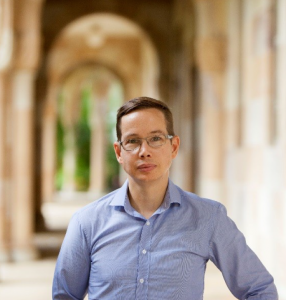Prof Gene Tyson delivers Annual Biodiversity Lecture for School of BioSciences
Where: BioSciences 2, Turner Theatre
When: Tuesday 24th April 2018 at 12:00noon-1:00pm
Chairperson: Prof Linda Blackall
Expanding our view of the microbial world
Over the last decade, metagenomics has changed the face of microbial ecology. Metagenomics bypasses traditional culture-dependent approaches and holds the promise of genome-level insights into the mostly uncharted microbial world. My research team is applying metagenomic techniques to recover a large number of genomes from many previously uncultivated bacterial and archaeal lineages and from increasingly complex environments. This has greatly expanded our understanding of the metabolic capabilities of these microbes and challenges our understanding of the evolution of many of these processes.
Biography: Professor Gene Tyson (Deputy Director of the Australian Centre for Ecogenomics, University of Queensland) is a microbial ecologist who applies culture-independent molecular approaches to understand the structure and function of in situ microbial communities.
During his dissertation research, Professor Tyson led a landmark metagenomics study on the metabolic potential and population diversity of microbial communities involved in acid mine drainage generation. This demonstrated for the first time that metagenomic data could be used to reconstruct genomes directly from environmental samples.
Following his PhD, he sought more complex microbial communities on which to apply cutting-edge molecular tools. At the Massachusetts Institute of Technology (2006-2009), he conducted postdoctoral research work aimed at understanding the composition, functional potential, regulation, and evolution of complex marine microbial communities at sites around the world’s oceans. A highlight of this research was the development of metatranscriptomics to investigate gene expression in microbial communities, which led to the discovery that marine microorganisms express a surprisingly large number of small RNAs. This has greatly improved our understanding of gene regulation in the marine environment and microbial communities in general.
The seminal research performed in the United States allowed Professor Tyson to return to Australia in May 2009 to start his own research group at the relatively young age of 31 at The University of Queensland (UQ). Professor Tyson’s group uses the metagenomic and metatranscriptomic approaches he helped pioneer to investigate microbial communities in a wide range of different habitats including both engineered systems and natural ecosystems. His research is primarily focused on exploring novel diversity with a special interest in microorganisms involved in methane cycling. He also has a strong interest in bioinformatics and his team actively develop new ways to analyse metagenomic, metatranscriptomic and single cell data.
Categories
